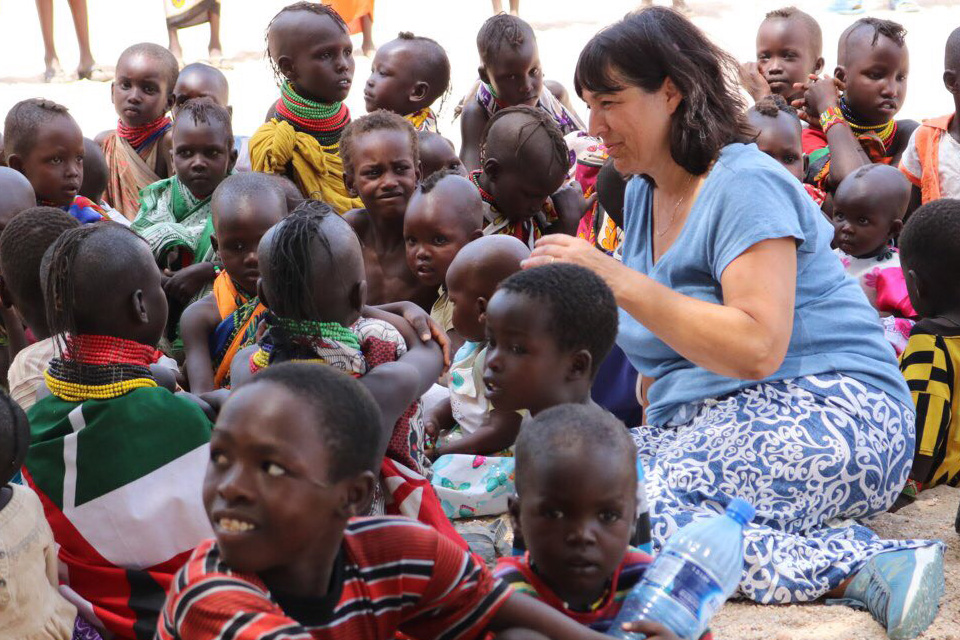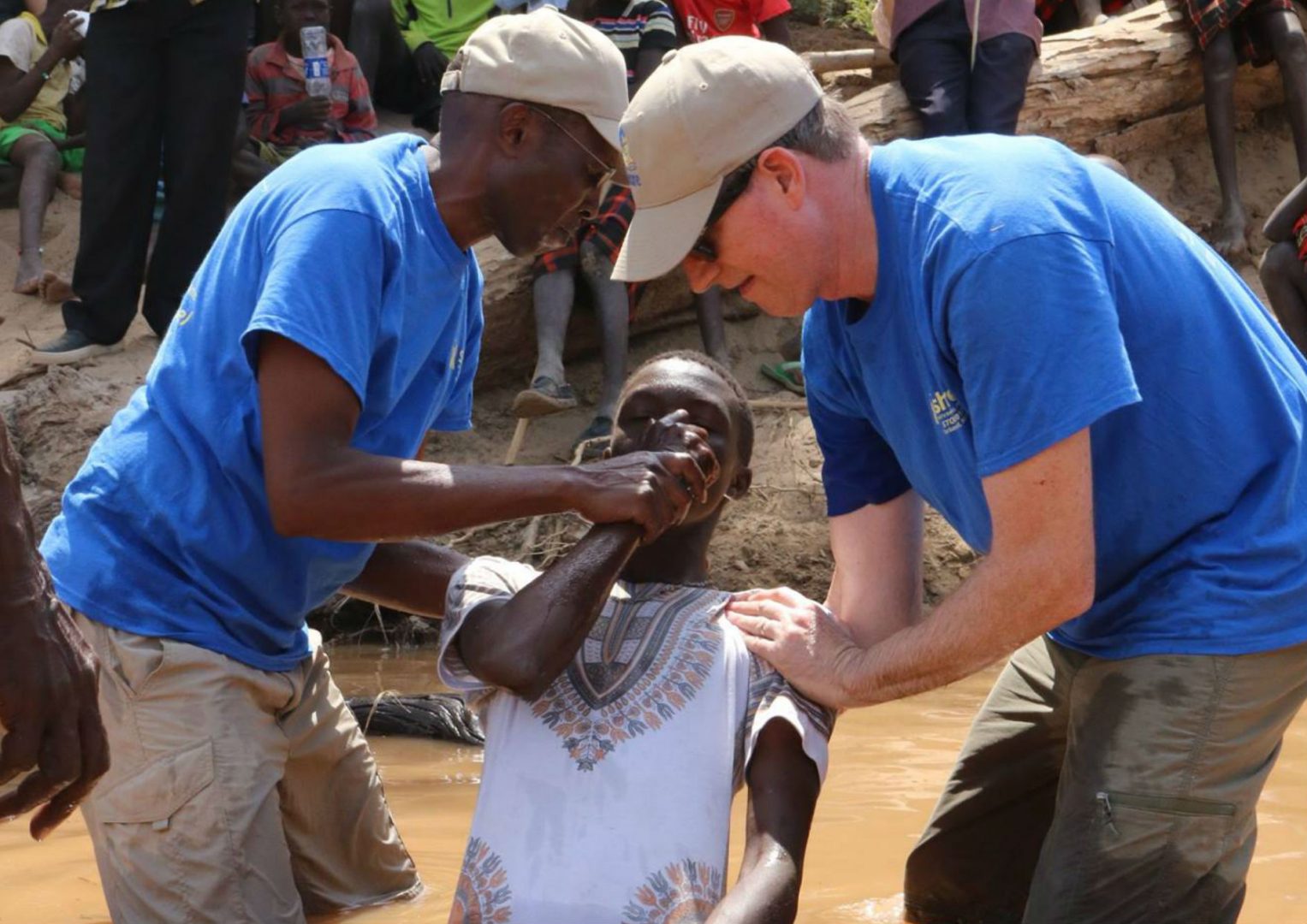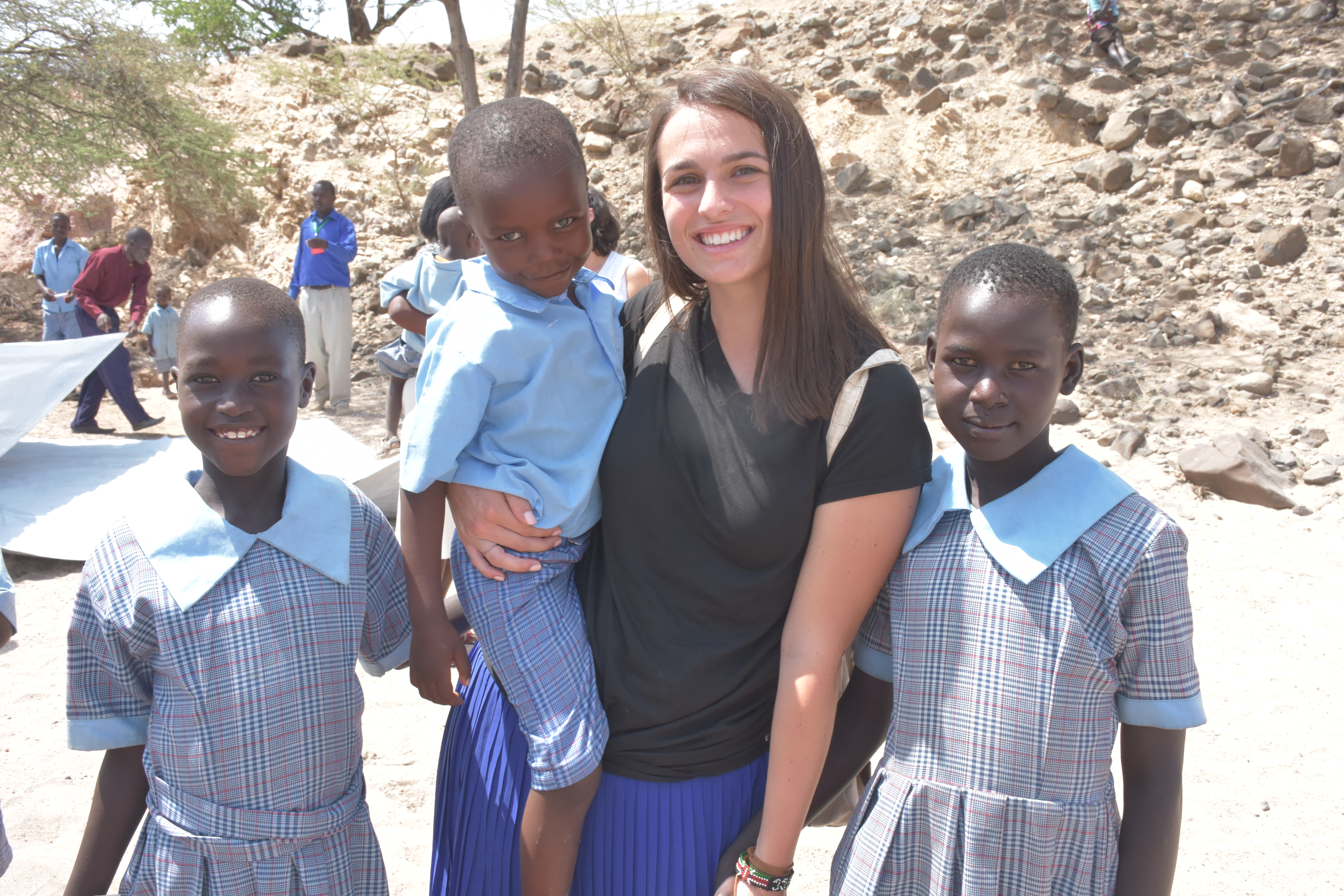


STORM
AMERICAN TEAM
INFORMATIONAL PACKET
STORM is Share International’s annual Short Term Outreach and Relief Mission trip.
We will be on a Mission with God! STORM participants are called to be “…co-workers in God’s service…” (1 Cor. 3:9a – NIV); Turkana people of Kenya are “… God’s field…” (1 Cor. 3:9b); and the task is to expand “…God’s building” (1 Cor. 3:9c) in Turkanaland.
- OVERALL PURPOSE
Through a short-term mission’s encounter, we will expose and sensitize participants to God’s love and compassion for another people-group (Turkana tribe of Kenya) and culture.
We will motivate and stir participants to use their spiritual gifts to confidently share the Good News and expand God’s Kingdom by teaching, leading to faith in Christ, and making disciples of many Turkana people.
The trip will enable indigenous and non-indigenous participants to serve alongside each other and to actively engage in missions together.
We hope to rekindle and keep a burning desire for missions in the hearts of the participants and enable an attitude of consistent appreciation of God’s work at home and abroad.
- THE TURKANA PEOPLE & LOCATION
The Turkana people live in the northwestern region of Kenya. They are the second largest pastoralist tribe in Kenya after the Maasai. They speak the Turkana language, which is Nilotic and similar to the Maasai language. The Turkana have maintained their undiluted traditional way of life. They are distinguished as being great survivors, living in harsh and inhospitable terrain. (http://www.kenya-information-guide.com/turkana-tribe.html)
The Turkana tribe originally came from the Karamojong region of northeastern Uganda. Turkana oral traditions purport that they arrived in Kenya while pursuing an unruly bull. The land they occupy is harsh and very dry. The Turkanas were, therefore, less affected by colonialism than other tribes because the British saw little value in their land.
The Turkana believe in a single God, Akuj, who is thought to be omnipotent but who rarely intervenes in the lives of people. Contact between Akuj and the people is channeled though a diviner, or emeron (a.k.a.witch doctor). All diviners come from a particular clan and are thought to have the power to interpret dreams, predict the future, heal the sick, and make rain. There are a number of gradations in the power of diviners – from those who predict the future by throwing sandals or reading intestines, to those who can make rain. Although the Turkana believe in the power of the emeron, they are also skeptical of those from the Emeron clan who say they have mystical powers, but fail to demonstrate that power in everyday life.
The ceremonial life of the Turkana is less important than that of many neighboring tribes. There are no large corporate and no physical initiations. The asapan ceremony signifies the transition from youth to adulthood, and every man is supposed to perform this ceremony before marriage.
The Turkana produce finely crafted carved wooden implements used in daily life. Another striking aspect of Turkana culture is the beautiful and intricate singing that is heard on moonlit nights during the rainy season. Men and women sing in groups; those with particularly good voices take the lead. Songs are often about cattle or the land, but the subject can also be impoverished and pertain to immediate events. Turkana now weave baskets that are sold in all the tourist shops in Nairobi.
The Turkana have an intimate knowledge of plants and their medicinal properties, both for humans and for livestock. Animal fat is considered to have medicinal qualities, and the fat-tailed sheep is often referred to as “the hospital for the Turkana.”
Although witchcraft and sorcery are found among the Turkana, it is important to note that the Turkana do not dwell on the magical or religious aspects of life. The corpse of a woman who has raised many children and that of a man who has been successful will be buried; others are left in the bush. Some people feel that after death a person will join Akuj, and others say that they do not know what happens after death.
http://www.everyculture.com/Africa-Middle-East/Turkana-Religion-and-Expressive-Culture.html
For additional information about the Turkana people and their culture, please visit
http://www.bluegecko.org/kenya/tribes/turkana/beliefs.htm.
- STORM ACTIVITIES
- Teach pastors, elders, missionaries and staff at Share’s SEND Center in Lodwar.
- Teach, disciple, encourage believers, share the Gospel with unbelievers of all ages, and participate in baptisms in remote villages.
- Participate in evangelism outreach in an unreached remote village for 2 days (overnight).
- Take a 2½-days Safari in the Maasai Mara National Park (optional but recommended).
- DISCERNMENT ABOUT THE TRIP
How do you know if you should participate in STORM?
- Listen to God through Prayer & His Word: Prayer is foundational in discerning participation in STORM. “If we ask anything according to God’s will He hears us, and answers us” (1 John 5:14-15). We pray because we acknowledge that, “…apart from (Christ) (we) can do nothing” (Jn. 15:5). We discern God’s will through His inspired Word. King David prayed…“Show me your ways, Lord, teach me your paths. Guide me in your truth and teach me, for you are God my Savior, and my hope is in you all day long” (Ps. 25:4-5). Spend time in prayer as early as now to seek God’s will for you regarding your participation in missions. Allow Him to place within you a desire for missions if it’s lacking.
- Listen to the Prompting in your Heart: The Holy Spirit will prompt you (sometimes through God’s people) to consider how God could use your gifts and skills to make a lasting impact through service among a disadvantaged people-group of another culture. Read Eph. 5:15-17. Ask God to give you His heart for those who have never heard the Good News. Allow Him room to speak to your heart so can see (feel) the need to stir and use the spiritual fervor and zeal within you to serve Him. Place Gospel priority above all else.
- Be Willing to Look for Opportunity: Even though there might be evidence of doors that are “closed”, open doors for Missions elsewhere around the globe are plentiful (Acts 16:6-10; 20:22, 24). Look for open doors and be willing to go. STORM presents an opportunity for an open door now. Be careful not to turn your back too quickly on what seems to be an open door because it doesn’t fit exactly what you have in mind. The Lord still calls His people to go and make disciples of all nations. Be willing to answer the call.
- Listen to the Counsel of Godly People: Share with, and listen to the counsel and wisdom (Prov. 15:22) of godly Christian leaders and your godly significant-others that God may give insight about your desire to be involved in STORM.
- Attend Scheduled Informational Meetings: Initial and subsequent meetings leading up to the trip are critical for all individuals who might have the slightest interest in going on the STORM trip. Attendance is a MUST. The meetings provide the opportunity for participants to discuss important trip details, training, and for planning together for what the team hopes to accomplish on the trip. The meetings also facilitate the decision-making process, whether to make or break the trip.
- ORIENTATION MEETINGS
Pre-STORM orientation workshops are critical. We must meet together to discuss some of the fallacies associated with Missions and establish realistic expectations, such as culture shock, potential indifference and opposition to the Gospel, realizing one’s own shortcomings, inadequacies, frustrations, weaknesses, and poverty, racial, and cultural differences. Orientation will also discuss the “Checklist”.
Unless you are a STORM repeat, all team members will be required to attend orientation meetings. The team leader (Sammy) will set up a schedule for such meetings. It is very important that we all make the effort to meet at least once at a designated location, and stay closely connected thereafter via e-mail or phone, to get to know each other before STORM.
- DEVOTIONAL, DOCUMENTATION & REPORTING (see also under “Safari” below)
A very important part of STORM is making time to be alone with God each day. We encourage each participant to make that a priority in the midst of the very busy schedule.
The participant is encouraged to provide first-hand and accurate information to churches, groups, individuals, family members, or news media where appropriate upon return back home. To do so, it’s important to make time for journaling during the entire trip. Any documented observations will be very useful to you in your walk with the Lord, and in reporting what God is doing outside your comfort zone.
- PROTOCOL & ETIQUETTE
The general social demeanor in the African context (especially among the Turkana people) can be summed up in one word – unsophisticated! The lifestyle in Turkanaland will perhaps be the most “down-to-earth” that you will ever have experienced. However, social relationships play a very significant role in establishing acceptance. Simplicity on your part, whether in protocol or etiquette, will invite lasting relationships through which Christ can be imaged.
- TRAVEL
- American Passport: Make sure you have obtained/renewed your American passport as soon as possible. If you already have a valid passport, make sure it does not expire within 6 months of the trip’s return date. The Kenya Government requires the passport to be valid for 6 months beyond the return date. The passport is also required for booking your international flights.
- Visa: Required to enter Kenya. This can now be obtained online for $50 at http://evisa.go.ke/evisa.html. You MUST apply for visa at least 6 weeks before departure for Kenya. Please indicate in the application the reason for your entry into the country as “Visit the Turkana people, and go on Safari ”. Never say that you are going to “work” in Turkanaland, which you are not. If you do, the Kenya Government will ask you to produce a work permit!
- Vaccination/Immunization: You will need to contact your local “Tropical/Infectious Diseases” doctor to find out which shots you will need to travel to Kenya at the time of travel. It is the responsibility of the participant to make sure that the immunization requirements of the particular country being visited are met. You can visit http://wwwnc.cdc.gov/travel/destinations/traveler/mission_disaster/kenya for a list of vaccinations recommended by the CDC for traveling to Kenya. Your primary care physician can refer you to the best place to have vaccinations administered. The U.S. Public Health Department will provide a yellow international immunization booklet in which all immunizations will be recorded. Required vaccinations for Kenya may include hepatitis, polio, typhoid, yellow fever, and malaria. You must have all the required shots administered at least three (3) weeks before departure for Kenya.
- Deposit: A non-refundable deposit of $200 must be submitted to Share International soon after the participant’s commitment to go on the trip (see Checklist for deposit deadline). The deposit will be applied toward the booking of airline tickets.
- ESTIMATED COST
The estimated cost of the trip is between $3,800 and $4,200. Most (~2/3) of this cost represents international and domestic travel costs and varies based on the participant’s city of origination, the class of travel, and the time of booking tickets. We work with travel agents who make every effort to find the lowest cost and efficient travel possible. The remaining 1/3 represents food, room and board, Safari and other incidental expenses. The cost does not include Vaccination/Immunization expenses.
- PHOTOGRAPHY & VIDEOGRAPHY
You are encouraged to bring your camera with you. We will also have an official photographer & videographer who will be part of the African team.
- SECURITY & PERSONAL FUNDS
While the participants must trust the Lord completely to keep us from harm’s way, we must also take necessary precaution to avoid possible unpredictable harm. You will be advised ahead of time, as may be necessary/possible, when and where to be extra cautious. If necessary, Share International will secure security escorts at a reasonable fee (this is not unusual at all – don’t be alarmed!). You must not leave the team at any time without notifying the leader.
You are strongly advised to wear a money belt or a money pouch. The local exchange rates will determine the timing and amount of cash to be exchanged. Do not be unnecessarily anxious. Let “the peace of God…guard your heart and your mind in Christ Jesus” (Phil. 4:7).
- WEATHER, ATTIRE, & ACCESSORIES
June-August is Kenya’s “winter” season! In Turkanaland it’s a very “hot winter” season, and one without humidity! It can stay above 100 Degrees Fahrenheit all day! Carry mosquito repellants and sun lotion. Mosquito nets will be provided. Take only summer clothes for the time we will be in Turkanaland. Carry a few springtime-like warm clothes for when you’ll be in Nairobi and on Safari – sometimes it can be quite chilly in the “City in the Sun” (Nairobi) and in game parks early morning and overnight. Carry a pair of simple Sunday wear, including a tie for men. Men can wear decent shorts in Turkanaland, but not on Sundays. Ladies MUST wear below-the-knee skirts or dresses while in Turkanaland! Only non-transparent outfits are permitted. Tank tops are acceptable. It is acceptable for ladies to wear decent slacks or split skirts in Nairobi, and, definitely, recommended during the Safari.
You must wear light ankle-high boots or firm tennis shoes while in Turkanaland. You must carry a hat and a pair of sunglasses to protect your head from the heat and eyes from glare. (You may want to carry two or three extra hats to give away – it is a perfect gift for the Turkana people!).
Remember to carry light camping-like essential accessories such as poncho, flashlight, pocketknife & lighter (must be in the check-in luggage during flights, not in your carry-on luggage), baby wet-ones (you’ll need them – believe me!), Germ-X (check at Wal-Mart), sun lotion, medicine, etc. Bring binoculars too if you can. In due time you will receive a more detailed list of items to carry.
- SAFARI (OPTIONAL), REFLECTION, & DEBRIEFING
For those who choose to take a short break (Mk. 6:31) during the last three days in Kenya, a Safari excursion is recommended. God has created natural attractions for man’s enjoyment in natural habitats. Kenya prides herself as one of the most beautiful wildlife habitations in the world. You will enjoy the breathtaking world of animals that wiggle and wile away in the willowy grasslands and mountains of Equatorial Kenya! Share plans such a Safari in the Maasai Mara National Park.
The team will take time during Safari to reflect on God’s impact upon their lives, debrief, write a report about their STORM experience (Acts 14:27-28), and share what they hope to do as a result when they return home. How did STORM grab hold of your heart and life? What will you do about it?
Those who choose not to go on Safari will fly to Nairobi from Lodwar with the rest of the team, then catch their flight back to the U.S., probably same day if possible.
It’s hoped that the team will arrange to present a report to their home church and friends. The reports will be submitted to Share International upon return back home.
14. LEGAL RELEASE FORM
Each participant will be required to provide a legal Liability Release signed by the participant and a lawyer, or Notary Public. Share will provide the “Release” form as soon the participant makes the definite decision to participate in STORM. Share will not accept any legal or health liability in case of any accident, attack, or illness during STORM. However, we will seek and exercise discretion and make viable decisions depending on the nature of any possible problem.
- APPLICATION
We request you to complete and submit the application and profile online at https://shareint.org/storm-application/ no later than January 31st of the year of your trip. We will notify you as soon as we review your application.
Contact: Sammy Murimi at director@shareint.org or Doug Neve at doug.neve@gmail.com with any questions.
